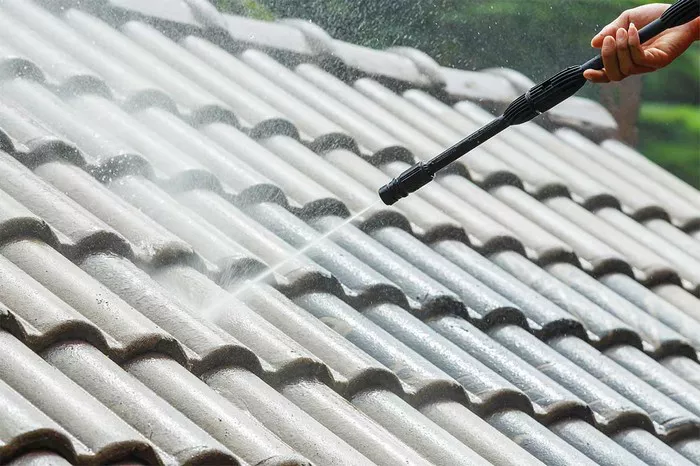Pressure washers have become indispensable for tackling a variety of cleaning tasks. They offer an efficient way to clean surfaces, from driveways to siding. However, understanding how powerful your pressure washer should be is crucial to ensuring you achieve optimal results without causing damage. This article delves into the factors that determine the ideal pressure washer power for different tasks, helping you make an informed decision.
What Is Pressure Washer Power?
The power of a pressure washer is typically measured in two key metrics: pounds per square inch (PSI) and gallons per minute (GPM). PSI refers to the water pressure, while GPM indicates the water flow rate. Together, these two factors determine the cleaning power of a pressure washer, commonly expressed as cleaning units (CU).
PSI and GPM: A Quick Overview
PSI: This determines how forcefully water is sprayed from the machine. Higher PSI is ideal for heavy-duty tasks.
GPM: This reflects how much water flows through the pressure washer per minute. Higher GPM improves the efficiency of cleaning larger areas.
Understanding the balance between PSI and GPM is essential when choosing the right pressure washer for your needs.
Choosing the Right Power for Common Cleaning Tasks
Different cleaning tasks require different levels of pressure. Using a pressure washer that is too powerful can damage surfaces, while one that is too weak might not clean effectively.
For Light Cleaning Tasks
When cleaning delicate surfaces or performing light tasks, such as washing windows, vehicles, or outdoor furniture, a pressure washer with 1,200 to 1,900 PSI is sufficient. These models are usually compact, lightweight, and perfect for everyday household cleaning.
Cleaning Windows
Windows and glass surfaces are fragile and should be cleaned with caution. Use a pressure washer with adjustable PSI settings and maintain a low pressure to avoid cracks or scratches.
Washing Vehicles
Vehicles have sensitive paint and finishes that require care. Opt for a model in the 1,500 PSI range to safely remove dirt and grime without damaging the surface.
For Medium-Duty Jobs
For tasks like cleaning decks, fences, or patios, a pressure washer with 2,000 to 2,800 PSI is ideal. This range balances power and control, ensuring effective cleaning without causing surface damage.
Decks and Patios
Wooden decks and concrete patios benefit from this PSI range. It removes dirt and mold while preserving the integrity of the material.
Fences
A pressure washer in this range can rejuvenate wooden or vinyl fences by removing stains and discoloration caused by weather exposure.
For Heavy-Duty Cleaning
Stubborn stains, grease, and mildew require a more powerful pressure washer. Models with 3,000 to 4,000 PSI are well-suited for these tasks. These are typically gas-powered machines and are ideal for professionals or those with large properties.
Driveways and Sidewalks
Oil stains and dirt embedded in concrete are no match for heavy-duty pressure washers. High PSI levels effectively break down tough grime.
Brick and Stone Surfaces
Brick walls and stone pathways often accumulate moss and dirt. A higher PSI ensures thorough cleaning without excessive effort.
Hot vs. Cold Water Pressure Washers
The temperature of the water also plays a role in cleaning power. Hot water pressure washers are more effective for grease and oil stains, while cold water models are sufficient for most household tasks.
Hot Water Machines
Hot water pressure washers combine heat with high pressure, making them ideal for industrial applications or cleaning grease-covered machinery.
Cold Water Machines
Cold water machines are versatile and suitable for general-purpose cleaning. They are more affordable and easier to use for residential cleaning tasks.
Adjustable Settings and Nozzles
Modern pressure washers often come with adjustable settings and interchangeable nozzles, allowing you to customize the pressure and spray pattern.
Nozzle Types
0-Degree Nozzle: Delivers a concentrated, high-pressure spray for stubborn stains.
15-Degree Nozzle: Ideal for stripping paint or cleaning tough dirt.
25-Degree Nozzle: Perfect for general cleaning tasks.
40-Degree Nozzle: Best for delicate surfaces like windows or vehicles.
Variable Pressure Settings
Some models offer variable pressure settings, enabling you to switch between light and heavy-duty cleaning with ease. This feature ensures you can adapt to different cleaning tasks without changing equipment.
Commercial vs. Residential Pressure Washers
The purpose of the pressure washer determines how powerful it should be. Commercial-grade models are designed for rigorous, frequent use, while residential ones cater to occasional cleaning.
Residential Pressure Washers
Residential models typically range from 1,200 to 3,000 PSI. They are compact, user-friendly, and perfect for home use.
Commercial Pressure Washers
Commercial-grade pressure washers can exceed 4,000 PSI and are built for durability. These machines handle large-scale cleaning tasks and are often used by professionals.
Safety Considerations When Using High-Power Machines
While a more powerful pressure washer can tackle tough jobs, it also increases the risk of injury or surface damage. Always follow safety guidelines when operating these machines.
Proper Usage Techniques
Hold the nozzle at a consistent distance from the surface to avoid gouging or stripping paint. Start with a wider spray pattern and lower pressure, adjusting as needed.
Protective Gear
Wear gloves and goggles to protect yourself from high-pressure water and debris. Avoid pointing the nozzle at people, pets, or fragile objects.
Avoid Delicate Surfaces
High-pressure machines are not suitable for delicate surfaces like windows, painted wood, or soft fabrics. Always test on a small area before proceeding.
Conclusion
The power of a pressure washer should match the cleaning tasks you need to perform. Whether you’re tackling light household chores, medium-duty maintenance, or heavy-duty cleaning, choosing the right PSI and GPM ensures optimal results. By understanding the capabilities of different pressure washer types and using them responsibly, you can maintain surfaces effectively while preserving their integrity.
Related topics:
How Long Does a Pressure Washer Last?

